
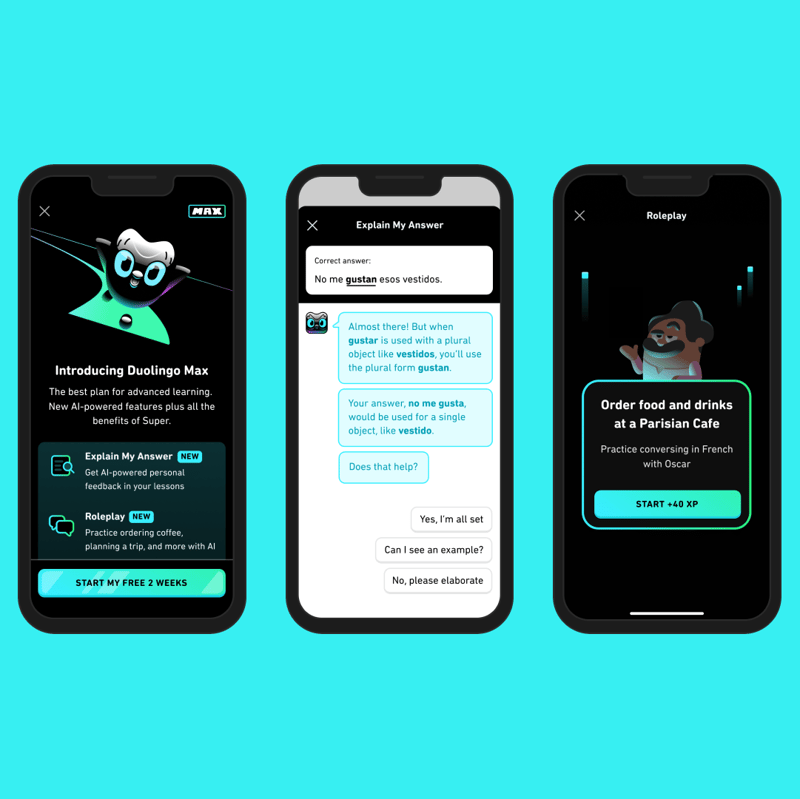

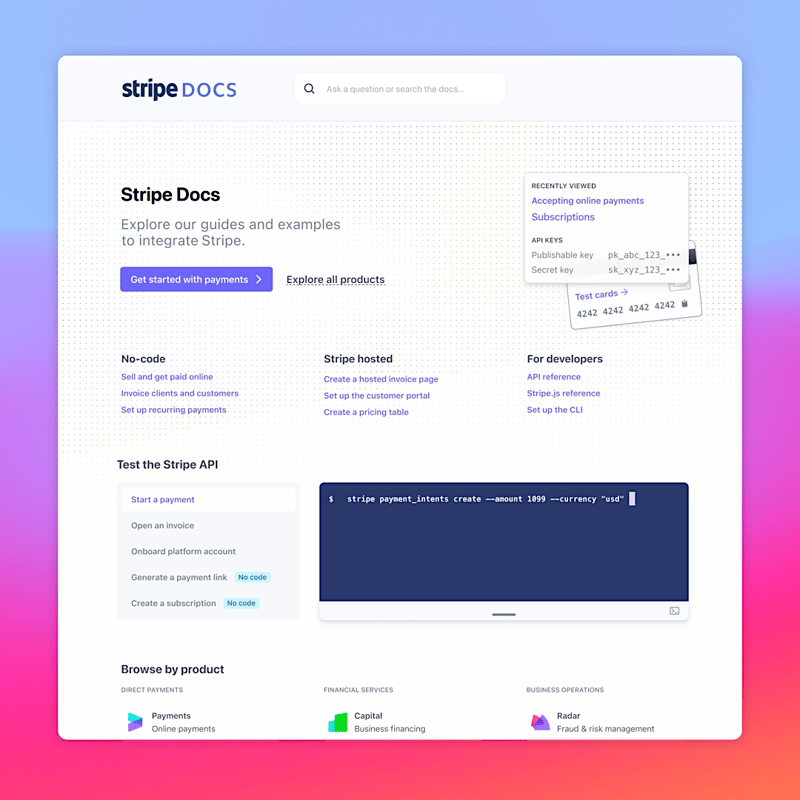

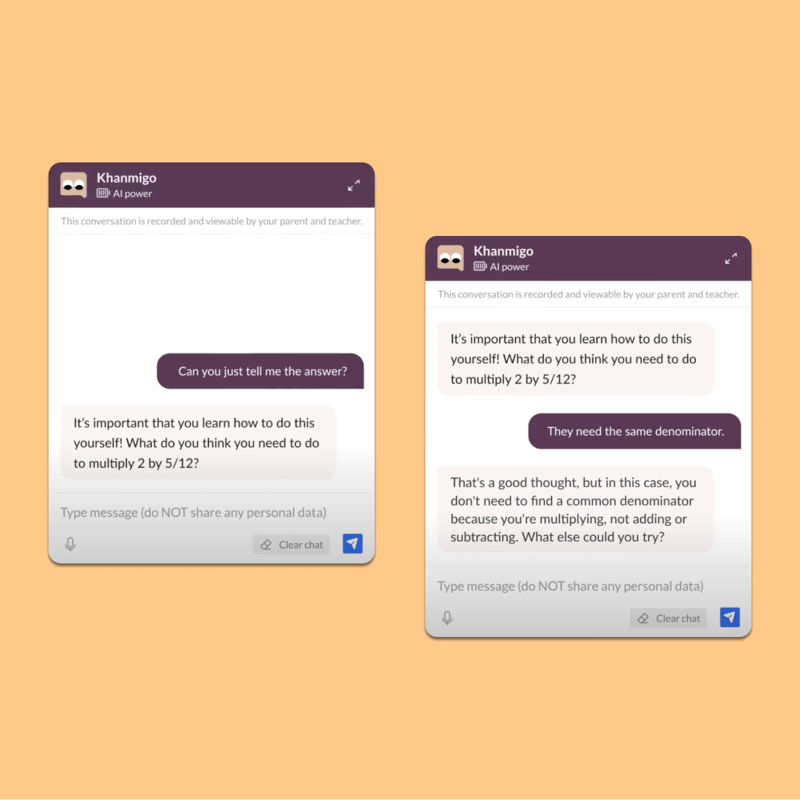

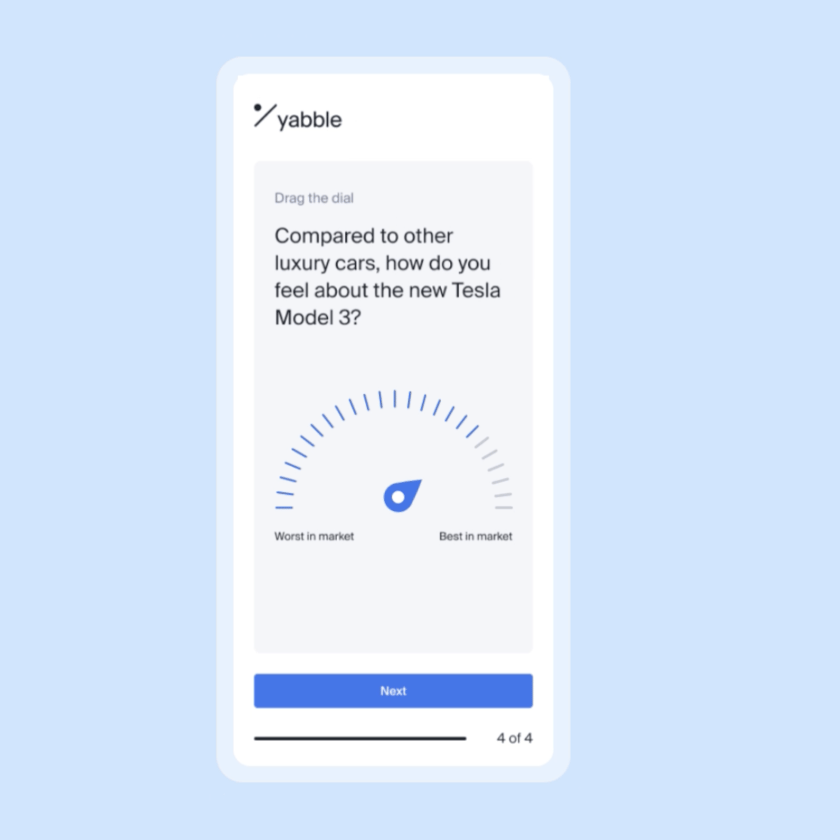
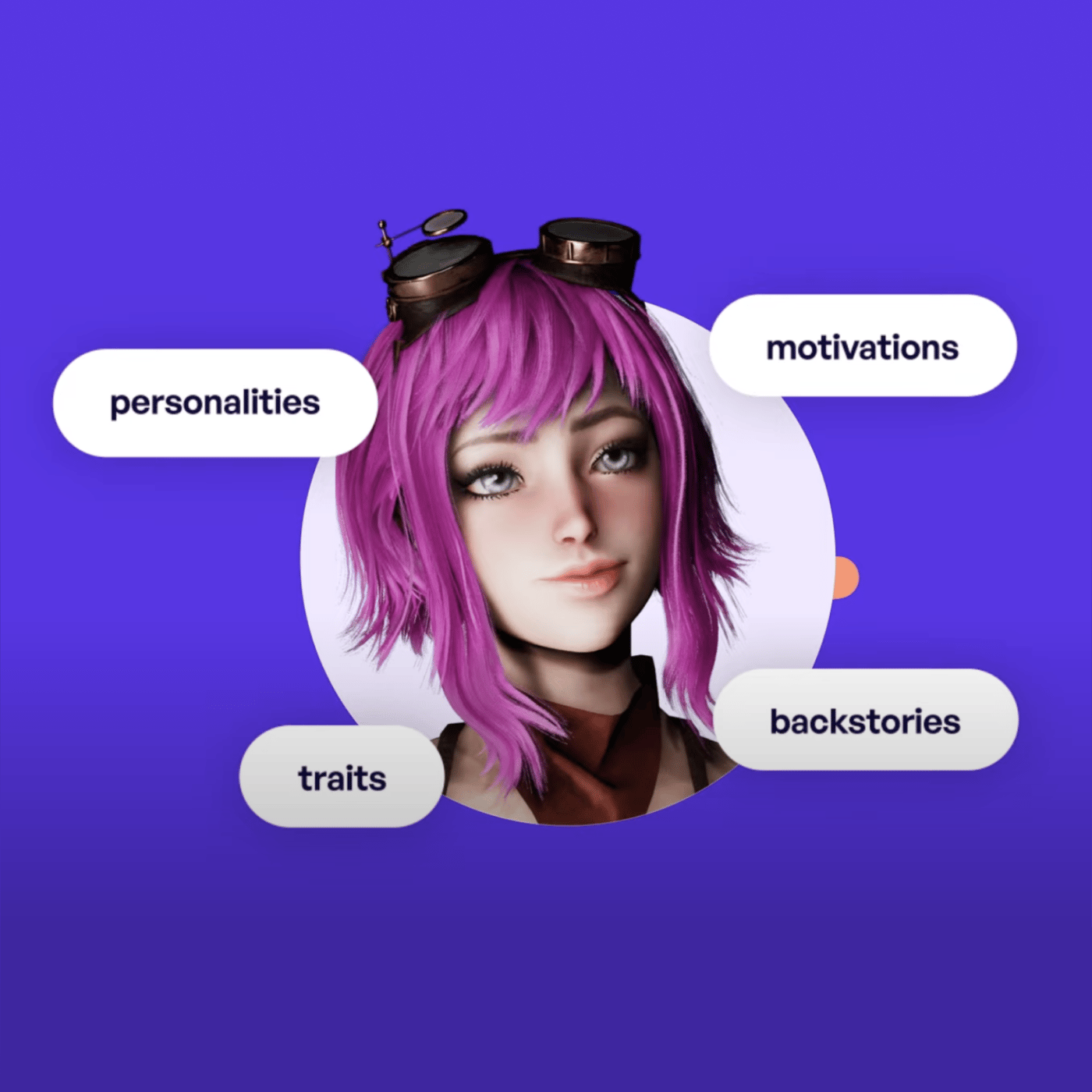
OpenAI
Chat GPT-4 (Artificial Intelligence System)
Estimated shipping in 5 business days
GPT-4 is OpenAI's most advanced system, producing safer and more useful responses.
ChatGPT (English acronym for chat generative pre-trained transformer,[1] in Portuguese transformer pre-trained conversation generator) is an intelligent virtual assistant in the online chatbot format with artificial intelligence developed by OpenAI, specialized in dialogue launched in November 2022 The chatbot is a language model tuned with supervised and reinforcement learning techniques. The base model that was tweaked was OpenAI's GPT-3.5 language model, a free and improved version of GPT-3. On March 15, 2023, GPT-4 was released only for ChatGPT Plus users.

ChatGPT is an artificial intelligence prototype that has gained attention for its detailed and articulate responses, although the accuracy of its information has been criticized. According to the NY Times, the enthusiasm surrounding the application of OpenAI technology was reminiscent of other moments that "turned Silicon Valley upside down, from the arrival of the first iPhone and the Google search engine to the introduction of the Netscape browser, which set the stage for the commercialization of the internet".[2] For Bill Gates, ChatGPT will change the world: "Until now, artificial intelligence could read and write, but could not understand content. New programs like ChatGPT will make many office jobs more efficient. It will change our world".[3]
We look forward to seeing how people use GPT-4 as we work to develop technologies that empower everyone.
More about GPT-4
To look for
GPT-4 is the latest milestone in OpenAI's effort to expand deep learning.
The infrastructure
GPT-4 was trained on Microsoft Azure AI supercomputers. Azure's AI-optimized infrastructure also allows us to deliver GPT-4 to users around the world.
Limitations
GPT-4 still has many known limitations that we are working to address, such as social biases, hallucinations, and adversary alerts. We encourage and facilitate transparency, user education and broader AI literacy as society embraces these models. We also intend to expand the possibilities for people to contribute to shaping our models.
Availability
GPT-4 is available in ChatGPT Plus and as an API for developers to build applications and services.
Features and Limitations
While the main function of a chatbot is to mimic a human conversationalist, ChatGPT is versatile. For example, he can write and debug computer programs, compose music, teleplays, fairy tales and student essays; answer the test questions (sometimes, depending on the test, at a level above the average human candidate); writing poetry and song lyrics; emulate a Linux system; simulate an entire chat room; playing games like tic-tac-toe; and simulate an ATM. ChatGPT training data includes man pages and information about Internet phenomena and programming languages such as bulletin board systems and the Python programming language.
Compared to its predecessor, InstructGPT, ChatGPT tries to reduce harmful and misleading responses. In one example, while InstructGPT accepts the premise of the prompt "Tell me about when Christopher Columbus came to the US in 2015" as being true, ChatGPT recognizes the counterfactual nature of the question and frames its answer as a hypothetical consideration of what could happen if Columbus came to the US in 2015, using information about Christopher Columbus' voyages and facts about the modern world – including modern perceptions of Columbus's actions.
Unlike most chatbots, ChatGPT remembers previous prompts given to it in the same conversation; journalists have suggested this will allow ChatGPT to be used as a personalized therapist. To prevent offensive results from being presented and produced from ChatGPT, queries are filtered through OpenAI's enterprise-wide moderation API; and potentially racist or sexist requests are dismissed.
ChatGPT suffers from multiple limitations. OpenAI acknowledged that ChatGPT "sometimes writes answers that seem plausible but are incorrect or nonsensical". This behavior is common to large language models and is called artificial intelligence hallucination. ChatGPT's reward model, designed around human supervision, can be over-optimized and thus degrade performance, otherwise known as Goodhart's law. ChatGPT has limited knowledge of events occurring after 2021. According to the BBC, as of December 2022, ChatGPT is not permitted to "express political views or engage in political activism". However, research suggests that ChatGPT displays a pro-environmental and left-libertarian orientation when asked to take a position on political statements from two established polling advice apps. In ChatGPT training, human reviewers preferred longer responses regardless of actual understanding or factual content. The training data also suffers from algorithmic bias, which can be revealed when ChatGPT responds to prompts including people descriptors. In one instance, ChatGPT generated a rap indicating that women and scientists of color were inferior to white scientists and men.
Front desk
ChatGPT received generally positive reviews. Samantha Lock of The Guardian noted that it was able to generate "impressively detailed" and "human-like" text.[4] Technology writer Dan Gillmor used ChatGPT on a student assignment and found that the generated text was in line with what a good student would deliver, and opined that "academia has some very serious issues to contend with".[5] Alex Kantrowitz of Slate praised ChatGPT's resistance to Nazi Germany-related issues, including the allegation that Adolf Hitler built highways in Germany, which he received information about Nazi Germany's use of forced labor.[6] In an opinion piece, economist Paul Krugman wrote that ChatGPT would affect demand from knowledge workers.[7] James Vincent of The Verge saw the viral success of ChatGPT as proof that artificial intelligence has gone mainstream.[8] In The Atlantic, Stephen Marche noted that its effect in academia and especially in application trials is still not understood.[9] California high school teacher and author Daniel Herman wrote that ChatGPT will usher in the "End of High School English".[10]
The factual accuracy of ChatGPT has been questioned, among other concerns. Mike Pearl from Mashable tested ChatGPT with a bunch of questions. In one example, he asked the model "the largest country in Central America that is not Mexico". ChatGPT responded with Guatemala, when the response was Nicaragua.[11] In December 2022, the question and answer website Stack Overflow banned the use of ChatGPT to generate responses to questions, citing the factually ambiguous nature of ChatGPT responses.[12] Economist Tyler Cowen has expressed concern about its effects on democracy, citing the ability to write automated comments in an effort to affect the decision-making process for new regulations.[13] Ax Sharma of Bleeping Computer noted that ChatGPT was capable of writing malware and phishing emails.[14]
Microsoft co-founder Bill Gates believes that ChatGPT is as important as the invention of the internet and that it will change our world.[15]
Service
ChatGPT was released on November 30, 2022 by San Francisco-based OpenAI, creators of DALL·E 2 and Whisper AI. The service initially launched as free to the public, with plans to monetize the service at a later date. As of December 4, OpenAI estimated that ChatGPT already had over one million users. As of January 2023, ChatGPT has reached over 100 million users, making it the fastest growing consumer app in that period. CNBC wrote on December 15, 2022 that the service "still goes down from time to time". The service works best in English, but it can work in a few other languages as well, with varying degrees of success. Unlike some other recent high-profile advances in AI, as of December 2022, there is no sign of an official peer-reviewed white paper on ChatGPT.
According to OpenAI guest researcher Scott Aaronson, OpenAI is working on a tool to attempt to digitally brand its text generation systems to combat bad actors who use its services for academic plagiarism or spam. The company says this tool, called "AI classifier to indicate text written by AI", "is likely to produce many false positives and negatives, sometimes with great confidence". An example cited in The Atlantic magazine showed that "upon receiving the first few lines from the Book of Genesis, the software concluded that it was likely generated by AI".
The New York Times reported in December 2022 that there were "rumors" that the next version of AI, GPT-4, would be released sometime in 2023. In February 2023, OpenAI began accepting registrations from United States customers for a premium service, ChatGPT Plus, which will cost you $20 per month. OpenAI is planning to launch a ChatGPT Professional Plan that costs $42 per month; and the free plan is available when demand is low.
On February 7, 2023, Microsoft confirmed that it will integrate ChatGPT with Bing.[16] Microsoft has also confirmed that it will integrate it into Teams. The service will start in June 2023 costing $7 for people to "taste"; and then the amount will rise to $10. In the video call service, the chatbot will be able to automatically create meeting notes, recommend tasks and generate highlights.[17]
Competition
In February 2023, Google introduced an experimental service based on its LaMDA artificial intelligence program called "Bard". This service generates text responses to questions asked based on information gathered from the web. Google CEO Sundar Pichai discussed how this technology would be integrated into current search functionality and revealed that some aspects of it would be available to third-party developers.[18][19]
Chinese search engine company Baidu announced in February 2023 that it would launch a ChatGPT-style service called "Wenxin Yiyan" in Chinese; or "ERNIE Bot" in English, in March 2023. The service is based on the language model developed by Baidu in 2019.[20]

Implications
Implications for cybersecurity
Check Point Research and others noted that ChatGPT was capable of writing phishing and malware emails, especially when combined with OpenAI Codex. OpenAI CEO, creator of ChatGPT, Sam Altman, wrote that advancing the software could pose "(for example) a huge cybersecurity risk" and also went on to predict "we could get to real AGI (artificial general intelligence) in the next decade, so we have to take the risk of that very seriously." Altman argued that while ChatGPT is "obviously not close to AGI", one should "rely on exponential. Flat looking backwards, vertical looking forward."
Implications for education
In The Atlantic, Stephen Marche noted that its effect in academia and especially in application trials is still not understood. California high school teacher and author Daniel Herman wrote that ChatGPT would usher in "The End of High School English".
In the journal Nature, Chris Stokel-Walker pointed out that teachers should be concerned about students using ChatGPT to outsource their writing, but that education providers will adapt to enhance critical thinking or reasoning.
Emma Bowman of NPR wrote about the danger of students plagiarizing through an AI tool that can produce biased or nonsensical text with an authoritative tone: "There are still many cases where you ask a question and it gives you a Very impressive sounding answer which is completely wrong."
Joanna Stern of The Wall Street Journal described cheating in American high school English with the tool by submitting a generated essay. Professor Darren Hick of Furman University described observing the "style" of ChatGPT in a student submitted paper. An online GPT detector claimed the paper was 99.9% likely to be computer generated, but Hick had no hard evidence. However, the student in question confessed to using the GPT when confronted and, as a result, failed the course. Hick suggested a policy of giving an individual ad-hoc oral exam on the article topic if a student is strongly suspected of submitting an AI-generated article. Edward Tian, a senior graduate student at Princeton University, claimed that he created a program, called "GPTZero", that detects whether an essay is written by humans or not to combat academic plagiarism.[21]
In a blind test, ChatGPT was found to have passed the graduate exams at the University of Minnesota at the C+ student level and at the Wharton School at the University of Pennsylvania with a grade of B to B-.[22]
Implications for financial markets
AI technology company c3.ai saw a 28% increase in its share price after announcing the integration of ChatGPT into its toolkit.[23] The stock price of Buzzfeed, a non-AI digital media company, rose 120% after announcing the adoption of OpenAI technology for content creation.[24] Reuters found that the stock prices of AI-related companies BigBear.ai and SoundHound AI increased by 21% and 40% respectively, despite not having a direct link to ChatGPT.[25] They attributed this increase to ChatGPT's role in making AI a Wall Street buzzword. Academic research published in Finance Research Letters found that the 'ChatGPT effect' prompted retail investors to increase prices of AI-related cryptocurrency assets despite the broader cryptocurrency market being in a bear-market, and diminished interest. of institutional investors.[26] This confirms Bloomberg's anecdotal findings that, in response to the launch of ChatGPT, cryptocurrency investors showed a preference for AI-related crypto assets.[27] An experiment conducted by finder.com revealed that ChatGPT could outperform popular fund managers by picking stocks based on criteria such as growth history and debt levels, resulting in a 4.9% increase in a hypothetical account of 38 stocks , outperforming 10 benchmark investment funds with an average loss of 0.8%.[28]
Grades
[1] Roose, Kevin (December 5, 2022). «The Brilliance and Weirdness of ChatGPT». The New York Times (in English). Retrieved December 26, 2022. Copy archived January 18, 2023. Like those tools, ChatGPT — which stands for "generative pre-trained transformer" — landed with a splash.
[2] «A Tech Race Begins as Microsoft Adds AI to Its Search Engine». NY Times (in English). February 5, 2023. Retrieved February 5, 2023
[3] «ChatGPT "will change our world", says Bill Gates». infomoney. February 5, 2023. Retrieved February 5, 2023
[4] Lock, Samantha (December 5, 2022). «What is AI chatbot phenomenon ChatGPT and could it replace humans?». The Guardian. Accessed on December 5, 2022
[5] Hern, Alex (December 4, 2022). «AI bot ChatGPT stuns academics with essay-writing skills and usability». The Guardian. Accessed on December 5, 2022
[6] Kantrowitz, Alex (December 2, 2022). «Finally, an AI Chatbot That Reliably Passes "the Nazi Test"». Slate. Accessed on December 5, 2022
[7] Krugman, Paul (December 6, 2022). «Does ChatGPT Mean Robots Are Coming For the Skilled Jobs?». The New York Times. Accessed on December 6, 2022
[8] Vincent, James (December 8, 2022). «ChatGPT proves AI is finally mainstream — and things are only going to get weirder». The Verge. Accessed on December 8, 2022
[9] Marche, Stephen (December 6, 2022). "The College Essay Is Dead". The Atlantic. Accessed on December 8, 2022
[10] Herman, Daniel (December 9, 2022). «The End of High-School English». The Atlantic (in English). Accessed on December 19, 2022
[11] Pearl, Mike (December 3, 2022). «The ChatGPT chatbot from OpenAI is amazing, creative, and totally wrong». Mashable. Accessed on December 5, 2022
[12] Vincent, James (December 5, 2022). «AI-generated answers temporarily banned on coding Q&A site Stack Overflow». The Verge. Accessed on December 5, 2022
[13] Cowen, Tyler (December 6, 2022). «ChatGPT Could Make Democracy Even More Messy». Bloomberg News. Accessed on December 6, 2022
[14] Sharma, Ax (December 6, 2022). «OpenAI's new ChatGPT bot: 10 dangerous things it's capable of». BleepingComputer. Accessed on December 6, 2022
[15] «ChatGPT "will change our world", says Bill Gates». CNN Brasil. Accessed on February 14, 2023
[16] «New era of search: Microsoft integrates controversial artificial intelligence into Bing». www.uol.com.br. Accessed on February 10, 2023
[17] «ChatGPT robot goes to Microsoft Teams starting in June». G1. Accessed on February 10, 2023
[18] «An important next step on our AI journey». Google (in English). February 6, 2023. Retrieved February 7, 2023
[19] Digital, Look; Serbian, Gabriel (February 6, 2023). "Google Announces Bard, Its Answer to ChatGPT". Digital Look. Accessed on February 7, 2023
[20] Toh, Michelle (February 7, 2023). «Baidu stock surges after announcement of ChatGPT-style AI bot | CNN Business». CNN (in English). Accessed on February 10, 2023
[20] «ChatGPT». Wikipedia (in English). January 27, 2023. Accessed January 27, 2023
[21] Kelly, Samantha Murphy (January 26, 2023). «ChatGPT passes exams from law and business schools | CNN Business». CNN (in English). Accessed on February 10, 2023
[22] Fox, Matthew. «C3ai has soared 86% year-to-date as investor frenzy for artificial intelligence builds amid ChatGPT success». Markets Insider (in English). Accessed on May 29, 2023
[23] «BuzzFeed Shares Surge 120% on Plans to Embrace OpenAI». Bloomberg.com (in English). January 26, 2023. Accessed May 29, 2023
[24] Reuters (February 6, 2023). «AI stocks rally in latest Wall Street craze sparked by ChatGPT». Reuters (in English). Accessed on May 29, 2023
[25] Saggu, Aman; Ante, Lennart (May 8, 2023).
[26] «The influence of ChatGPT on artificial intelligence related crypto assets: Evidence from a synthetic control analysis». Finance Research Letters (in English). 103993 pages. ISSN 1544-6123. doi:10.1016/j.frl.2023.103993. Accessed on May 29, 2023
[27] «ChatGPT Mania Spurs Crypto Fans' Stampede to 'Faddish' AI Tokens». Bloomberg.com (in English). February 9, 2023. Retrieved May 29, 2023
[28] Cooban, Anna (May 5, 2023). «ChatGPT can pick stocks better than your fund manager | CNN Business». CNN (in English). Accessed on May 29, 2023
| Language models | Several models, each with different capacities and prices. Prices are per 1000 tokens. You can think of tokens as chunks of words, where 1000 tokens is about 750 words. This paragraph is 35 tokens. | |||||||||||||||
| GPT-4 | With extensive general knowledge and domain experience, the GPT-4 can follow complex natural language instructions and solve difficult problems accurately. | |||||||||||||||
|
||||||||||||||||
| Chat | ChatGPT templates are optimized for dialog. The performance of gpt-3.5-turbo is on par with Instruct Davinci. | |||||||||||||||
|
||||||||||||||||
| InstructGPT | Instruction templates are optimized to follow single-loop instructions. Ada is the fastest model while Davinci is the most powerful. | |||||||||||||||
|
||||||||||||||||
| Fine-tuning models | Create your own custom models by tuning our base models with your training data. After tuning a model, you will only be charged for the tokens used in requests to that model. | |||||||||||||||
|
||||||||||||||||
| Incorporation models | Create advanced search, grouping, topic modeling and sorting functionality with our embed offering. | |||||||||||||||
|
||||||||||||||||
| Image templates | Create DALL·E directly in your applications to generate and edit new images and artwork. Our image templates offer three levels of resolution for flexibility. | |||||||||||||||
|
||||||||||||||||
| Audio templates | Whisper can transcribe speech to text and translate multiple languages into English. | |||||||||||||||
|
||||||||||||||||
| Usage quotas | When you sign up, you'll be given an initial spending limit, or quota, and we'll increase that limit over time as you build a history with your app. If you need more tokens, you can always request a quota increase. | |||||||||||||||
| Simple and flexible | Start for free Start your trial with $5 in free credit that you can use during your first 3 months. Pay as you go To keep things simple and flexible, pay only for the features you use. Choose your model Use the right model for the job. We offer a spectrum of capacities and prices. |
What is a token?
You can think of tokens as parts of words used for natural language processing. For English text, 1 token is approximately 4 characters or 0.75 words. As a point of reference, Shakespeare's collected works are about 900,000 words or 1.2 million index cards.
Which model should I use?
While Davinci (text-davinci-003) is generally the most capable model, the other models can perform certain tasks extremely well, and in some cases significantly faster. They also have cost advantages. For example, Curie can perform many of the same tasks as Davinci, but faster and at 1/10 the cost. We encourage developers to experiment to find the most efficient model for their application. Visit our documentation for a more detailed model comparison.
How will I know how many tokens I've used each month?
Log in to your account to view your usage control panel. This page will show how many tokens you have used during current and past billing cycles.
How can I manage my expenses?
You can set a hard usage limit in your billing settings, after which we will stop fulfilling your requests. You can also set up a soft threshold to receive an email alert once you exceed a certain usage threshold. There may be a delay in applying the limit and you are responsible for any overage incurred. We recommend checking your usage dashboard regularly to monitor your spending.
Is the ChatGPT API included in the ChatGPT Plus subscription?
No, ChatGPT API and ChatGPT Plus subscription are billed separately. The API has its own price. The ChatGPT Plus subscription covers chat usage only and costs $20/month.
Does using the Playground count against my quota?
Yes, we treat Playground usage the same as normal API usage.
How is the price calculated for completions?
Completion requests are charged based on the number of tokens sent in your prompt plus the number of tokens in the completion(s) returned by the API.
The best_of and n parameters can also affect costs. Since these parameters generate multiple completions per prompt, they act as multipliers on the number of tokens returned.
Your request can use up to num_tokens(prompt) + max_tokens * max(n, best_of) tokens, which will be charged at the per-engine rates described at the top of this page.
In the simplest case, if your prompt contains 10 tokens and you request a single padding of 90 tokens from the davinci engine, your request will use 100 tokens and cost $0.002.
You can limit the costs by reducing the prompt length or maximum response length, limiting the use of best_of/n , adding appropriate stopping sequences, or using mechanisms with lower per-token costs.
How is the price calculated for fine-tuning?
There are two components to adjusting pricing: training and usage.
When training a fitted model, the total tokens used will be charged at our training rates. Note that the number of training tokens depends on the number of tokens in your training dataset and the chosen number of training epochs. The default number of epochs is 4.
(Tokens in your training file * Number of training epochs) = Total training tokens
After tuning a model, you will only be charged for the tokens you use. Requests submitted for fitted templates are charged at our usage rates.
Is there an SLA on the various models?
We will publish an SLA shortly. In the meantime, you can visit our status page to monitor service availability and view historical uptime. If your company or application has specific requirements, please contact our sales team.
Is the API available on Microsoft Azure?
Yes. Azure customers can access the OpenAI API on Azure with the compliance, regional support, and enterprise-grade security that Azure provides.
-10% additional
Subscribe to our newsletter and get an additional 10% discount on your order and access to new promotions, products and publications




